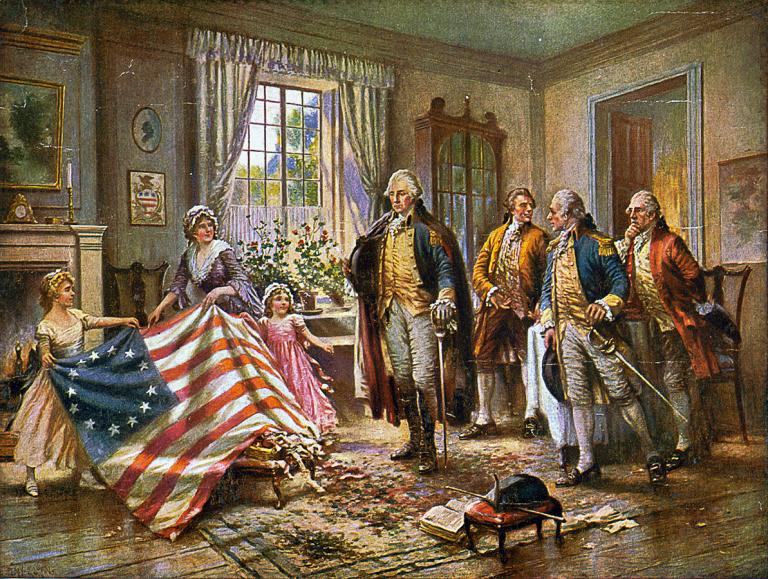
You know the quote, don’t you?
I believe in American exceptionalism, just as I suspect that the Brits believe in British exceptionalism and the Greeks believe in Greek exceptionalism.
President Barack Obama in an April 2009 press conference, here quoted at FactCheck.org.
He came under much criticism for this comment, suggesting as it does that he doesn’t really believe that there’s anything special about the United States, except for as a certain emotional reaction that everyone has about their countries. In other speeches, he tried to undo this impression by reiterating that he does indeed believe that America is special.
But a lot of the discussions taking place right now — about guns, about the economy, about society and culture — is a call from progressives for a lot less “American exceptionalism.”
America is “exceptional” — that is, different from other “Western” countries — in its Bill of Rights. Other countries have rights guarantees, to be sure, but couched in weasel-words. For instance, here’s what Germany’s constitution has to say about free speech:
(1) Every person shall have the right freely to express and disseminate his opinions in speech, writing, and pictures and to inform himself without hindrance from generally accessible sources. Freedom of the press and freedom of reporting by means of broadcasts and films shall be guaranteed. There shall be no censorship.
(2) These rights shall find their limits in the provisions of general laws, in provisions for the protection of young persons, and in the right to personal honor.
In other words, the constitution itself says it may restrict free speech as it finds appropriate.
America is “exceptional” in its similar guarantees of the right to bear arms. Now, the writers I tend to read tend to be pro-gun rights, and one interesting theme I’ve been encountering lately is the idea that gun rights are not simply a matter of what’s written into the constitution, but a basic natural right — that of the ability to protect one’s self, rather than being dependent on the government to enforce its laws — that our government rightfully protects.
America is “exceptional” in its rejection of a social welfare state. We spend federal money on healthcare, cash or in-kind benefits for the poor, the elderly, and families, mass transit, and other elements of a “welfare state” to a much lower degree than European countries, and collect much less in taxes as a result. (As a reminder, European countries don’t fund their welfare states by taxing the “millionaires and billionaires” but by by higher taxes on all its residents, including a high VAT and high payroll taxes, both of which would be decried as “regressive” in the U.S.)
America is “exceptional” in its greater degree of religiosity, both historically (with waves of religious awakenings/revivals) and at present. For better of worse, this is presumed to contribute to its higher birthrate, both due to a lesser degree of comfort with routinizing the combination of teen sex and contraception, and due to religion-influenced willingness by at least a certain portion of our population to have large(r) families.
America is “exceptional” in both our historical stain of slavery and our present day ethnic mix and high rate of immigration. To be sure, other countries are now dealing with the impact of immigration and the need to integrate immigrants (the UK, France, Germany) but it’s not in their DNA in the way it is with ours, for good or for ill — because, as readers will recall, I am a skeptic of the “diversity is our strength” mantra and believe that it is, instead, a disadvantage we must overcome, made more visible lately by the various squabbles over “cultural appropriation” and the fact that we don’t have a single “American culture” in the way that Bavarians have their lederhosen and dirndls. And other countries have “stains” (e.g., the Holocaust, or the involvement of the UK in the slave trade and the ways in which they mistreated those in the lands they colonized) but those legacies are not as ever-present as is the legacy of slavery.
And America is “exceptional” in our love of our country, in which we believe that we offer something special to the world, in our invention of democracy (however flawed) in the modern world, in our ideals however much we fail to uphold them, in our desire to create a better world for others, in our promotion of the idea that each of us should, through volunteerism, help others rather than depend on the government to do so, as exemplified by the Memorial Day parade above, and by institutions such as the Boy Scouts and their slogan to “do a good turn daily.”
What if we “undid” these elements of “exceptionalism”? Would we a better country? A happier country, a healthier one? And would the rest of the world be better off if we simply unwound what makes us different?
To be honest, you might accuse me of being wholly irrational, but I tend to feel that all of these “exceptional” characteristics are interconnected. It’s like the three-legged stool that requires all three legs — except that there are a lot more legs. I am not saying there is something “bad” or “wrong” with, say, the way Germany runs its government or the way German culture is, but I do think that there would be a loss to the world, not a gain, if America lost its Americanness, and just became, say, South Canada.
Finally, apropos of nothing, I leave you with my favorite commercial during our time in Germany, over a decade ago:
Image: own work













